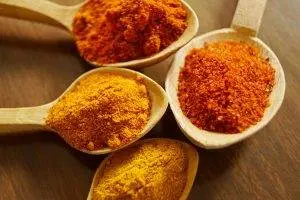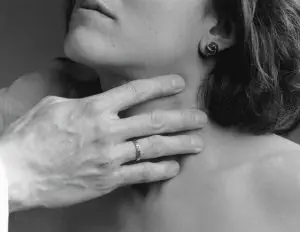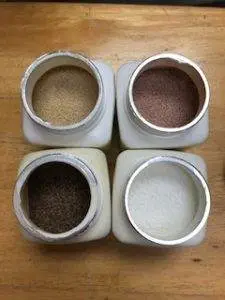-
 Art of Wellness Acupuncture & Traditional Chinese Medicine (TCM)11704 Wilshire Blvd, Suite 295, Los Angeles, CA, 90025
Art of Wellness Acupuncture & Traditional Chinese Medicine (TCM)11704 Wilshire Blvd, Suite 295, Los Angeles, CA, 90025
myartofwellness@gmail.com310-451-5522 Office Hours
MonClosedTue7:30 am --4 pmWed7:30 am --4 pmThu7:30 am -- 4 pmFri7:30 am -- 4 pmSat7:30 am -- 4 pmSunClosedOur office opens from Tuesdays to Saturdays 7:30 am to 4 pm, will be closed on Memorial day, Independent day, Labor day, Thanksgiving day, Christmas and New year.
-
Recent Posts
- Acupuncture for Sciatica Pain
- Can Acupuncture Help With Bladder Control?
- How to Treat De Quervain’s Tenosynovitis With Acupuncture and TCM
- Chinese New Year 2026: Year of the Horse
- Acupuncture and TCM Treatment for Perimenopause Symptoms
- How to Treat Insulin Resistance With Acupuncture and TCM
- How to Treat Metabolic Syndrome With Acupuncture and TCM
- How to Treat Syncope With Acupuncture and TCM
- How to Treat Thoracic Outlet Syndrome With Acupuncture and TCM
- How to Treat Dupuytren’s Contracture With Acupuncture and TCM
- How to Treat Nutcracker Syndrome With Acupuncture and TCM
- How to Treat Rosacea With Acupuncture and TCM
- How to Treat Perioral Dermatitis With Acupuncture and TCM
- Lymphatic Drainage With Acupuncture and TCM
- How to Treat Turf Toe With Acupuncture
- How to Treat Nerve Pain With Acupuncture and TCM
- Sign up to receive news and updates and get my free report:“The Top 10 Reasons to Try Acupuncture”

February 2026 M T W T F S S 1 2 3 4 5 6 7 8 9 10 11 12 13 14 15 16 17 18 19 20 21 22 23 24 25 26 27 28
Herbal Medicine
How to Treat Flu With Acupuncture and TCM
By Xiaomei Cai, L.Ac., Ph.D. and Qineng Tan, L.Ac., Ph.D.

Coughing, fatigue, body aches, fever? The flu often comes on more suddenly and intensely than a common cold. Acupuncture and Traditional Chinese Medicine (TCM) offer holistic treatment for the flu, alleviating flu symptoms, strengthening the immune system, and helping your body recover faster and avoid complications.
What Is the Flu?
Influenza, or “the flu,” is a viral infection that targets the respiratory system. Caused by various strains of the influenza virus, the flu spreads easily through respiratory droplets when someone sneezes, coughs, or talks, or by touching contaminated surfaces and then touching your mouth, nose, or eyes.
Unlike the common cold, the flu can lead to complications like sinus infections, bronchitis, or pneumonia, especially for children, older adults, pregnant individuals, and people with chronic health conditions.
Flu symptoms generally last 5–7 days, but fatigue and weakness may linger for weeks. Complications like pneumonia, bronchitis, or worsening of chronic conditions can occur, making proper care and recovery essential.
Acupuncture treatment and traditional Chinese herbal remedies can help make you feel more comfortable, fight off the virus, shorten the duration of the flu, and help prevent further complications, like pneumonia.
Top 10 Flu Symptoms
While flu symptoms can vary, they are typically more intense than those of a cold. Common flu symptoms include:
- High fever (usually above 100°F/37.8°C)
- Chills and sweating
- Severe fatigue
- Body aches and muscle pain
- Headache
- Dry, persistent cough
- Sore throat
- Runny or stuffy nose
- Shortness of breath or chest discomfort
- Nausea, vomiting, or diarrhea (more common in children)
The flu’s systemic effects, such as body aches and fever, set it apart from the cold, which tends to stay localized in the nose and throat.
Conventional Flu Treatment

When most people experience flu symptoms, they usually turn to over-the-counter (OTC) remedies to manage discomfort and speed recovery. Common options include pain relievers like acetaminophen or ibuprofen to reduce fever, body aches, and headaches. Decongestants such as pseudoephedrine can help alleviate nasal congestion, while antihistamines may reduce runny nose and sneezing. Cough suppressants and expectorants are frequently used for managing cough symptoms. These remedies do not treat the flu virus itself but aim to ease symptoms and improve comfort during recovery.
When consulting a medical doctor, the advice may differ based on the severity of symptoms and the patient’s health history. Doctors typically recommend rest, plenty of fluids, and fever management with OTC medications. For higher-risk patients, such as the elderly, young children, or those with underlying conditions, a physician may prescribe antiviral medications like oseltamivir (Tamiflu) or baloxavir (Xofluza). These antivirals work best when started within 48 hours of symptom onset and may help reduce the duration and severity of the flu. Doctors may also advise preventive measures such as flu vaccines to reduce the likelihood of severe flu symptoms in the future.
How TCM and Acupuncture View and Treat the Flu
In Traditional Chinese Medicine (TCM), the flu is understood as an invasion of external pathogens, which disrupt the body’s internal balance. These pathogens are categorized by patterns that describe the nature of the illness and its symptoms.
For the flu, the two most common TCM diagnostic patterns are:
Wind-Cold Flu: Symptoms include chills, body aches, mild fever, and a runny nose with clear mucus. This type of flu often makes you feel cold and tired. Treatment in TCM focuses on dispersing wind and cold, warming the body, and alleviating muscle aches.
Wind-Heat Flu: Symptoms include a high fever, sore throat, cough, and yellow mucus. People with wind-heat flu may feel hot, irritable, and experience dryness or redness in the throat and nasal passages. Treatment focuses on clearing heat, reducing inflammation, and supporting the body’s ability to heal.
In TCM, the flu is not seen as a single illness but as a dynamic condition unique to the individual. Acupuncture treatment for the flu aims to restore balance by addressing the specific pattern of symptoms and supporting the immune system.
An acupuncturist will treat you with an individualized treatment plan, including acupuncture points and herbs to help relieve specific symptoms and address underlying conditions.
Can Acupuncture Help the Flu?

Acupuncture helps to boost the immune system and relieve symptoms like body aches, congestion, and fever by stimulating specific points that regulate the body’s energy (Qi).
Acupuncture is a safe and natural way to support the body during and after the flu. Specific acupuncture points are used to target the symptoms and promote faster recovery by relieving nasal congestion and sinus pressure. Points on the face and head can help open the nasal passages and reduce sinus pain.
Acupuncture helps improve blood circulation and relax the muscles to ease body aches and discomfort. Points along the lung and throat meridians can help relieve dryness, inflammation, and coughing.
In addition to acupuncture, herbal medicine is often used to support the body during flu recovery. Herbal formulas like Yin Qiao San or Gan Mao Ling are commonly prescribed to address early-stage flu symptoms, such as sore throat and fever. Other remedies, like ginger tea or custom herbal combinations, may be recommended based on the individual’s specific needs and flu pattern.
Preventing the Flu with Acupuncture and TCM
The best way to avoid the flu is to strengthen your immune system before flu season hits. TCM emphasizes maintaining balance in the body through regular acupuncture treatments, seasonal herbal formulas, and healthy lifestyle habits. Diet, sleep, and stress management are also key components of flu prevention in TCM. Foods like warming soups, ginger, garlic, and green vegetables can help nourish the body and support immunity.
Traditional Chinese Medicine (TCM) has demonstrated significant promise in the prevention and treatment of influenza through various mechanisms, including antiviral effects, immune modulation, and anti-inflammatory properties. Classical TCM prescriptions incorporate combinations of herbs that target both the virus and the host’s immune response.
TCM contributes to indirect antiviral activity by regulating the host immune system. Studies reveal that herbal prescriptions like Sheng Jiang San (SJS) and Yinqiao powder help modulate cytokine activity, which is associated with lung inflammation in influenza.
TCM approaches flu treatment through a dual action: directly targeting the virus and enhancing the host’s immune defenses while controlling inflammation.
Getting regular acupuncture treatments and taking your herbal formula is one of the best ways to prevent flu and the common cold.
Acupuncture Near Me for Flu Relief in Santa Monica and West LA
Whether you’re dealing with the flu or looking for preventative care during flu season, acupuncture and TCM offer a natural, effective approach to health and wellness. At Art of Wellness, our experienced practitioners tailor treatments to address your unique symptoms and help your body recover faster. Contact us today to learn more about how we can support your health through every season.
*This article is for education from the perspective of Traditional Chinese Medicine only. The education provided by this article is not approved by FDA to diagnose, prevent, treat and cure human diseases. It should not stop you from consulting with your physician for your medical conditions. Traditional Chinese Medicine is based on Qi, which is an invisible force that usually cannot be observed by modern science. Because science focuses on testing ideas about the natural world with evidence obtained through observation, these aspects of acupuncture can’t be studied by science. Therefore acupuncture and Chinese herbs are often not supported by double-blind, randomized trials, and they are considered alternative medicine therapies in the United States.
How to Treat SIBO With Acupuncture and TCM
by Qineng Tan, L.Ac., Ph.D. and Xiaomei Cai, L.Ac., Ph.D.

Abdominal pain, bloating, diarrhea? These can be SIBO symptoms. SIBO, or small intestinal bacterial overgrowth, can cause bloated stomach, abdominal cramps and pain. Acupuncture and TCM can offer alternative SIBO treatment and bloating relief.
Small Intestinal Bacterial Overgrowth (SIBO) is a condition in which an abnormal increase in the population of bacteria occurs in the small intestine.
Unlike the large intestine, which is rich in bacterial flora essential for digestion and immune function, the small intestine typically contains relatively few bacteria. When these bacteria proliferate excessively in the small intestine, they can disrupt normal digestion and nutrient absorption, leading to a variety of uncomfortable and sometimes debilitating symptoms.
Problems with gut motility also contribute to SIBO symptoms. Peristalsis is the process by which the smooth muscle tissues in the intestine move food matter through the gastrointestinal tract. When peristalsis isn’t happening the way it should, this is known as dysmotility. This can lead to stagnation of food matter in the intestine, which allows for an overgrowth of bacteria to build up. This in turn can causes hydrogen and methane gas to be produced by the fermentation of carbohydrates that are stagnant in the small intestine. This excess gas causes painful bloating and distension of the abdomen.
SIBO can cause a range of digestive symptoms, such as bloated stomach, abdominal pain, diarrhea, constipation, and malabsorption of nutrients from food, which can result in unwanted weight loss and nutritional deficiencies. Vitamin B12 deficiency is particularly common among people suffering from SIBO.
Other symptoms, seemingly unrelated to the gastrointestinal system, can include: fatigue, headache, low fever, and rosacea.
SIBO is often associated with other health issues, including irritable bowel syndrome (IBS), celiac disease, and diabetes.
Acupuncture and TCM can work as an adjunct or alternative treatment for SIBO symptoms.
This can lead to hydrogen and methane gas being produced by the fermentation of carbohydrates that are stagnant in the small intestine. This excess gas can cause painful bloating and a distended abdomen.
What Causes SIBO?

A wide variety of different issues can play a role in the development of SIBO. Many conditions may cause problems with the secretion of gastric acids, with motility of the small intestine, gut immune function, and structural issues related to surgeries, injuries, or other abnormalities of the intestine.
Conditions that may contribute to SIBO include:
- Gastroparesis due to diabetes, or connective tissue disorders, viral infection, or ischemia
- Cirrhosis
- Chronic renal failure
- Scleroderma
- Crohn’s disease
- Celiac disease
- Recurrent rounds of antibiotics
- Excessive consumption of alcohol
- GI tract surgeries that create structural abnormalities
- Immune deficiencies of T-cell or antibody responses
What’s the Difference Between IBS and SIBO?
Symptoms of SIBO are very similar to IBS symptoms, and it is possible for a person to have both IBS and SIBO at the same time. The difference between SIBO and irritable bowel syndrome is that IBS is a functional syndrome stemming from issues in the large intestine, whereas SIBO occurs in the small intestine.
One review of studies showed that the incidence of SIBO among patients with IBS is much higher than among people who don’t have IBS symptoms. The exact link between IBS and SIBO has not yet been clarified by medical science.
Medical Treatment for SIBO
In Western medicine, the treatment of SIBO typically involves a multi-faceted approach aimed at reducing the bacterial overgrowth, addressing the underlying causes, and managing symptoms.
Along with trying to find and address any underlying conditions that may be causing or contributing to SIBO, the mainstays of conventional treatment include antibiotics and medications to help improve gut motility.
The primary treatment for SIBO is the use of antibiotics to reduce the bacterial load in the small intestine. Commonly prescribed antibiotics include rifaximin, metronidazole, and ciprofloxacin. These antibiotics are chosen for their ability to target the small intestine bacteria while minimizing disruption to the rest of the gut microbiota.
Unfortunately, while antibiotics may help reduce bacteria, but they can also come with unwanted side effects. Rifaximin can cause bladder pain, urinary frequency, difficulty urinating, and cloudy urine. It can also contribute to feelings of anxiety, dizziness, headaches, fast breathing, fast heartbeat, and problems sleeping.
Antibiotics do not necessarily ease symptoms like gas and bloating, and can cause constipation and black, tarry stool.
Prokinetics are medications that help improve gut motility, ensuring that food and bacteria move efficiently through the digestive tract, which can help prevent bacterial stasis and overgrowth. Common prokinetics include erythromycin in low doses, prucalopride, and metoclopramide.
Dietary modifications will usually be recommended to help manage SIBO. Patients are often advised to follow specific diets such as the low FODMAP diet, which reduces the intake of fermentable carbohydrates that can feed bacterial overgrowth. Other dietary approaches may include the Specific Carbohydrate Diet (SCD) or an elemental diet, which involves consuming easily digestible, nutrient-rich formulas.
It can be difficult for people to follow a SIBO diet, and many physicians are not able to spend the time with patients that is required to properly support these behavioral changes. Without dietary support, the antibiotics and prokinetics may not do enough to get rid of SIBO.
Successful treatment of SIBO often requires addressing any underlying conditions that contribute to bacterial overgrowth. This could involve treating gastrointestinal motility disorders, managing chronic pancreatitis, or addressing structural abnormalities such as strictures or diverticula.
By understanding the underlying causes and employing a comprehensive treatment strategy, conventional medicine aims to alleviate symptoms and reduce the recurrence of SIBO. However, due to the chronic nature of the condition and the complexity of the gut microbiome, many patients seek complementary treatments such as acupuncture and herbal medicine to support their overall gut health and enhance the effectiveness of their treatment plan.
Can Acupuncture Help SIBO?

Chinese herbal medicine has its own way of helping to relieve SIBO, improve motility and digestion, and soothe uncomfortable stomach pain and bloating.
TCM theory views stagnation of Qi and blood as being one of the primary pathogenic forces in the body that causes pain and disease. In the case of SIBO, weakness or stagnation of organ systems, such as the stomach, liver, and spleen, is often part of the diagnostic pattern.
Diet, herbs, and supplements may all play an important role, in addition to acupuncture treatment for SIBO. Digestive enzymes and/or probiotics may be helpful in some cases. It may be necessary to eliminate some foods for a time to help control excessive fermentation and bacterial proliferation that is causing the gas and bloating.
There are foods and herbs that can work as natural prokinetics, to help improve gut motility and aid in proper absorption of nutrients. Ginger, turmeric, and peppermint oil are a few easy-to-find products that can help with digestion. There are also classic Chinese herbal preparations that can work even better than pharmaceutical prokinetics to help relieve constipation and indigestion.
A review of trials in China using Modified Runchang-Tang (MRCT) showed that in a sampling of over 2000 patients, this herbal formula worked better than conventional laxatives for relieving constipation.
Another review found that Modified Chaihu Shugan powder (MCSP) worked better than chemical prokinetics to help resolve symptoms of dyspepsia, or indigestion.
In addition to specific Chinese herb formulas that can help relieve digestive issues and work to get rid of unhealthy bacteria, there are other well-known common herbs that can also be helpful:
- Black cumin
- Garlic
- Cloves
- Cinnamon
- Thyme
- All-spice
- Bay leaves
- Mustard
- Rosemary
Acupuncture practitioners have generally received much more specialized training in nutrition than conventional doctors. Your acupuncturist will be able to make dietary recommendations that are specific to your symptoms and condition.
Acupuncture for SIBO Near Me in Los Angeles
Dr. Tan and Dr. Cai at Art of Wellness in West Los Angeles/Santa Monica have over 30 years of experience helping people with all types of gastrointestinal disorders. You do not have to suffer with gas pain and bloating, constipation or persistent diarrhea. Try Chinese medicine as an alternative or adjunct treatment for SIBO and IBS.
*This article is for education from the perspective of Traditional Chinese Medicine only. The education provided by this article is not approved by FDA to diagnose, prevent, treat and cure human diseases. It should not stop you from consulting with your physician for your medical conditions. Traditional Chinese Medicine is based on Qi, which is an invisible force that usually cannot be observed by modern science. Because science focuses on testing ideas about the natural world with evidence obtained through observation, these aspects of acupuncture can’t be studied by science. Therefore acupuncture and Chinese herbs are often not supported by double-blind, randomized trials, and they are considered alternative medicine therapies in the United States.
How to Treat Graves Disease With Acupuncture and TCM
By Qineng Tan, L.Ac., Ph.D. and Xiaomei Cai, L.Ac., Ph.D.

Goiter? Bulging eyes? Red eyes, eye pain? Feeling anxious and irritable? Hand tremor? These can all be signs of Graves disease, an autoimmune disorder that causes hyperthyroidism. Acupuncture and TCM can help relieve Graves disease symptoms.
Graves disease is an autoimmune disorder in which the immune system creates antibodies that make the thyroid produce too much thyroid hormone. This is known as an “overactive thyroid,” or hyperthyroidism.
Many different conditions can lead to excessive levels of thyroid hormone, but Graves disease is the most common cause of hyperthyroidism. About 80% of people with hyperthyroidism have Graves disease. Graves disease tends to affect women more often than men.
A person is more likely to have Graves disease if other people in their family have it, or have Hashimoto’s disease. People who have Graves may also have other autoimmune disorders, like Rheumatoid arthritis, autoimmune gastritis, Type 1 diabetes, or vitiligo (an autoimmune skin condition).
As with other autoimmune diseases, there is still limited understanding from a medical research perspective about what exactly causes Graves disease. Graves disease requires attention, as it can lead to serious health issues.
What Is Overactive Thyroid?
The thyroid gland is located in the front of the throat and is responsible for producing hormones that control metabolism, or how the body converts food into energy. The main thyroid hormones are thyroxine (T3) and triiodothyronine (T4).
The thyroid hormones impact many processes in the body, including your metabolic rate (how you use calories), how quickly food passes through your digestive tract, your heart rate, maintenance of body temperature, and the production of new cells to replace dying ones.
Thyroid function can have a big impact on your weight and digestion. Thyroid hormone imbalances can cause skin problems, vision problems, and problems with menstrual cycles, libido, and fertility.
Acupuncture can be an effective treatment for managing hyperthyroidism symptoms.
Top 10 Graves Disease Symptoms
Graves disease most typically begins to show up in midlife, between the ages of 30 and 50. Signs of Graves disease may develop slowly over several weeks or months. Each individual’s experience with symptoms may be different; you may have some of the following symptoms, but not others.
Common symptoms of Graves disease include:
- Rapid weight loss
- Increased appetite
- Diarrhea, more frequent bowel movements
- Rapid heartbeat, heart palpitations
- Feeling shaky, hand tremor, tremor in fingers
- Clammy skin, sweating, feeling hot
- Insomnia, trouble sleeping
- Goiter, enlarged thyroid gland on the front of the throat
- Changes in menstrual cycle
- Muscle weakness
About a third of people with Graves disease will also develop Graves ophthalmopathy, or thyroid eye disease. This happens due to inflammation and swelling of the muscles and tissues around the eyes. This can happen in both eyes, or just one eye.
Graves disease eye symptoms can include:
- Bulging eyes
- Eyelids don’t close all the way
- Puffy eyes, swelling around the eyes
- Eye pain, eye pressure
- Sensitive to light
- Eye irritation, gritty eyes
- Double vision
- Blurred vision
- Red eyes
- Trouble moving the eyes
Treatment for Graves Disease

Diagnosis of Graves disease will usually involve blood tests to check for elevated thyroid hormones and the presence of antibodies that stimulate thyroid hormone production. A thyroid uptake scan will show how much iodine your thyroid absorbs; high absorption of iodine is a sign of Graves disease. A Doppler ultrasound may also be done to see if there is extra blood flow to your thyroid gland.
Graves disease is considered a chronic condition with no cure. However, medications and other interventions can help control thyroid hormone levels. Antithyroid medications like Tapazole block the overproduction of T3 and T4. Side effects of these medications can include itchy skin rashes, nausea, hair loss, muscle pain or joint pain, headaches, dizziness, and other problems. Some people can develop serious liver problems.
Radioiodine therapy, or radioactive iodine ablation (RAI), is a treatment for Graves disease that involves taking radioactive iodine, which, as it is absorbed by the thyroid, will destroy the overactive cells of the thyroid gland. Many patients who undergo this treatment will end up being hypothyroid (low thyroid levels) and will have to have thyroid hormone replacement treatment. RAI treatment can affect the salivary glands, causing dry mouth and sometimes a loss of the ability to taste.
A thyroidectomy is a surgical option, which involves the removal of some or all of the thyroid gland. This may be recommended if a person has a very enlarged goiter, or thyroid gland. As with RAI, this may require that a person takes thyroid hormone replacement in the future. There is a risk that the vocal cords can suffer damage during this procedure, which may affect a person’s voice long-term.
Acupuncture and TCM offers an alternative or adjunct treatment for Graves disease that can help address the root cause of hyperthyroidism as well as help to manage symptoms.
Can Acupuncture Help Graves Disease?

According to TCM theory, hyperthyroidism and Graves disease are related to imbalances in Qi: typically, yin deficiency is the result of excessive yang energy. Stagnation of phlegm in the liver meridian around the throat area can also have an impact on the thyroid gland.
Herbal formulations that help address liver qi stagnation can help relieve many of the symptoms associated with Graves disease, including palpitations, increased heart rate, and insomnia. Other Chinese herb treatments can help to reduce thyroid hormone levels and even the size of an enlarged thyroid.
One study that compared patients who were treated with acupuncture and herbs versus those who were treated with antithyroid medications. Over 95% of the group who received TCM treatment had positive outcomes, while 73% of the group who were given medications saw positive improvement.
Another independent study showed a similar result, with some patients given acupuncture plus conventional medications, while another group received medication only. The acupuncture group had a 96% positive outcome, while the medication only group had a 64% success rate.
One case study of a woman who had tried antithyroid medications but had suffered from hives as a side effect had good results after taking TCM herbs. Her thyroid levels returned to normal and remained in the normal range even after she discontinued the herbs.
An overview of research shows that acupuncture and herbs have the potential to help patients with Graves disease and hyperthyroidism by lowering thyroid hormone levels, relieving stress, improving sleep, and relieving symptoms like tremors and muscle weakness, as well as IBS-like symptoms of diarrhea.
A TCM practitioner can also give personalized advice regarding dietary and other lifestyle changes that can further help to alleviate symptoms and strengthen Qi.
Acupuncture Near Me for Graves Disease in West Los Angeles
Acupuncture and herbal medicine can be excellent modalities for hard-to-treat disorders, because TCM offers a different lens through which we can see health issues like autoimmune disorders and hormonal imbalances. TCM treatments can strengthen a person’s health on the deepest levels, while also relieving a wide variety of symptoms. Acupuncture can be very helpful for thyroid disorders like Graves disease and hyperthyroidism, as well as Hashimoto’s thyroiditis (Hashimoto) and hypothyroidism.
*This article is for education from the perspective of Traditional Chinese Medicine only. The education provided by this article is not approved by FDA to diagnose, prevent, treat and cure human diseases. It should not stop you from consulting with your physician for your medical conditions. Traditional Chinese Medicine is based on Qi, which is an invisible force that usually cannot be observed by modern science. Because science focuses on testing ideas about the natural world with evidence obtained through observation, these aspects of acupuncture can’t be studied by science. Therefore acupuncture and Chinese herbs are often not supported by double-blind, randomized trials, and they are considered alternative medicine therapies in the United States.
How to Treat Hay Fever With Acupuncture and TCM
By Qineng Tan, L.Ac. Ph.D. & Xiaomei Cai, L.Ac., Ph.D.

Itchy eyes, runny nose and sneezing? These are some of the classic seasonal allergy symptoms, also known as allergic rhinitis, or hay fever. Acupuncture and TCM herbs can help relieve allergies, including pollen allergy symptoms.
Seasonal allergies affect about 20% of Americans. Allergic rhinitis is an immune system reaction to an allergen in the air that can be inhaled, like pollen from budding trees, growing grass, and plants like ragweed. Hay fever is a common term that typically describes being allergic to pollen.
“Pollen” are tiny seeds from plants that can be carried by the wind. When there is lots of pollen in the air, this is called a high pollen count. You can check the pollen count, like a weather report, to see when it is particularly high, and thus may affect people who suffer from seasonal allergies and asthma.
While having an allergic reaction to common airborne allergens happens most often during the spring, summer, and early fall, when plants are giving off a lot of pollen, people can actually experience hay fever at any time of the year.
Similar allergy symptoms can occur due to exposure to dust mites, molds, and pet dander.
Acupuncture and TCM can help relieve the irritating symptoms caused by allergic reactions by helping to strengthen and balance the immune system so that it is not so easily triggered.
Top 10 Seasonal Allergy Symptoms

The body’s histamine response causes inflammation of the mucus membranes in the sinuses and throat. The increased mucus production occurs in order to drive out the offending allergens.
Pollen allergy symptoms are similar to those of the common cold. Signs of hay fever include:
- Sneezing
- Nasal congestion
- Runny nose, itchy nose
- Itchy eyes, watery eyes (allergic conjunctivitis)
- Itchy throat
- Postnasal drip
- Headaches, sinus pain
- Dark circles under eyes, puffy eyes, “allergic shiners”
- Fatigue, malaise, generally feeling under the weather
- Wheezing, coughing, trouble breathing
Skin rash is a less common symptom of seasonal allergies, but some people do develop a hay fever rash. The itchy allergy rash may look similar to hives: raised red welts on the skin.
Treatment for Hay Fever
The common medical treatment for hay fever is an antihistamine. Histamines are chemicals that occur naturally in the body as part of the immune response to allergens in the environment. The release of histamines is what leads to allergy symptoms like a runny nose and itchy eyes.
Antihistamines come in pill or spray form, and they block the histamine response, which can temporarily relieve the hay fever symptoms. However, these medications do have side effects, the most common of which is drowsiness.
If someone is not getting relief from antihistamines, then corticosteroids, or steroids, may be prescribed. These work as anti-inflammatories, which in this case means that they reduce the swelling of mucous membranes. Steroids, too, can have significant side effects, especially when used over a long period of time.
Nasal sprays for allergies, like Flonase or Mucinex, are decongestants that are designed to be sprayed into the nose to help reduce allergy runny nose. Again, these may provide some temporary relief, but people can quickly get used to them, so they stop being effective.
Acupuncture and TCM offer an alternative treatment for allergies that can help relieve hay fever symptoms without side effects.
Can Acupuncture Help Hay Fever?

According to TCM theory, allergies fall under the category of illnesses that are caused by “wind” as a pathogenic force that can invade the body. In the TCM view, hay fever occurs due to wind-heat getting into the lungs.
Weakness of the kidneys and spleen can also contribute to hay fever; when they are sluggish, mucus tends to build up, and we become more easily fatigued.
When the defensive Qi is strong, it can protect us from cold, heat, wind, and dampness getting into the body and causing problems. Defensive Qi is roughly analogous to what we think of as the immune system in conventional medicine.
TCM treatment for allergic rhinitis may include acupuncture, herbal supplements, moxibustion, and nutrition counseling. TCM can be used either as an alternative therapy for allergies, or as an adjunct treatment for hay fever, along with pharmacological treatment.
Chinese herbs have been used for many centuries to treat allergy symptoms. Now, we are able to see scientific evidence that these herbs, such as astragalus, magnolia flower, and licorice root, do actually have an effect on the immune response and histamine function by helping to regulate the production of chemicals like cytotoxic T-cells and immunoglobulin G. Compounds found in scutellaria root have been found to inhibit the production of inflammatory cytokines, and stephania root can help prevent anaphylaxis.
With Chinese herbal medicine, we are able to create customized formulas for each patient, depending on their particular presentation of symptoms.
Acupuncture is a highly effective modality for all types of allergies, from allergic rhinitis to atopic dermatitis or eczema, and can help relieve the nasal sinus symptoms that affect the eyes, nose and mouth if someone is allergic to pollen. It can also help reduce itching due to allergic skin rashes.
A clinical trial conducted at a hospital in China showed that a regimen of acupuncture and herbs resulted in over 90% of patients reporting that their nasal symptoms were greatly reduced.
Another published study showed that acupuncture reduced levels of Immunoglobulin-E, an antibody that is associated with allergy responses.
A review of studies of acupuncture for allergic rhinitis showed that this treatment has both short-term and long-term efficacy.
TCM treatment for seasonal allergies allows us to get to the root cause of allergy symptoms and help prevent them from happening. In this way, acupuncture and herbs can function as preventive medicine for hay fever. Getting acupuncture periodically throughout the year can help you avoid allergy attacks when the pollen count is high.
Top 3 Tips for Hay Fever Prevention
Here are some things you can do to help prevent spring hay fever and relieve pollen allergy symptoms:
- Avoid dairy food and cold foods, which promote more mucus production.
- Apply warm compresses to the face to soothe the eyes and nasal area.
- Use an air purifier in your home to keep allergens out of the environment.
To relieve allergies, emphasize more cooked foods that help warm the body.
Acupuncture Near Me for Hay Fever in Los Angeles Area, Santa Monica
The multifaceted approach of TCM makes it uniquely suited to help relieve seasonal allergy symptoms. Acupuncture can help reduce hay fever symptoms right away and help prevent allergies from knocking you down every time the pollen count is high. Please do not hesitate to seek relief from hay fever by giving acupuncture and herbs a try.
*This article is for education from the perspective of Traditional Chinese Medicine only. The education provided by this article is not approved by FDA to diagnose, prevent, treat and cure human diseases. It should not stop you from consulting with your physician for your medical conditions. Traditional Chinese Medicine is based on Qi, which is an invisible force that usually cannot be observed by modern science. Because science focuses on testing ideas about the natural world with evidence obtained through observation, these aspects of acupuncture can’t be studied by science. Therefore acupuncture and Chinese herbs are often not supported by double-blind, randomized trials, and they are considered alternative medicine therapies in the United States.
How to Treat Bronchitis With Acupuncture and TCM
By Xiaomei Cai, L.Ac., Ph.D. & Qineng Tan, L.Ac., Ph.D.

Chest cold with a productive cough, shortness of breath, coughing up mucus? These could be acute bronchitis symptoms. Acupuncture and TCM herbs can provide an alternative bronchitis treatment to help relieve chest congestion and a chronic cough.
Bronchitis is a respiratory infection in which the bronchial tubes, or airways, become inflamed. It typically causes chest congestion, a wet cough, coughing up phlegm, and difficulty breathing. Acute bronchitis usually develops due to the same kinds of viral infections that cause the common cold or pneumonia.
Chronic bronchitis refers to long-term inflammation of the lungs and bronchial tubes that is not related to an infection. If a person has a cough with mucus that lasts for months, or happens year after year, it is considered chronic bronchitis. This can happen as a result of smoking, and/or exposure to air pollution.
Like emphysema, chronic bronchitis is considered a chronic obstructive pulmonary disease (COPD). There are other lung conditions that can cause symptoms similar to those of bronchitis, including: asthma, sinusitis, whooping cough (pertussis) and tuberculosis.
Acute bronchitis usually clears up within a few weeks, but the persistent cough may linger. Antibiotics do not help treat viral infections, so the treatment for bronchitis is usually just to help suppress the cough and reduce aches and pains.
TCM treatment with acupuncture and herbs can help relieve bronchitis symptoms without side effects. It can also help remove pathogens and blockages affecting the lungs, so that bronchitis doesn’t turn into a chronic, recurrent condition.
Bronchitis Symptoms

Acute bronchitis causes the airways of the lungs—the bronchial tubes—to swell, and the lungs to produce extra mucus. Coughing, with clear or yellowish phlegm, is the primary symptom of bronchitis.
The most commons symptoms of bronchitis include:
- Cough, phlegmy cough, cough with mucus, productive cough, persistent cough
- Chest soreness, tightness in chest, chest pain
- Fatigue, feeling tired
- Shortness of breath, trouble breathing, wheezing
- Sore throat
- Stuffy nose, runny nose
- Body ache, headache, back pain, muscle pain
- Low grade fever
Is bronchitis contagious? It is not so much bronchitis as a condition—that is, inflammation and congestion in the lungs—is contagious, as the virus or bacterial infection that caused bronchitis to develop is contagious for a period of time. The coughing may last for a while beyond the infectious period. Sleeping can be difficult, because the cough tends to worsen when a person lies down.
Bronchitis Treatment
When you seek treatment for acute bronchitis from a physician, it is generally treated in the same way as the common cold. Recommendations will include:
- Rest
- Increase fluid intake, drink more water
- Take OTC pain relievers
- Take expectorants or cough suppressants to manage coughing
- Use a humidifier or sit in a steamy shower room to help relieve congestion
These remedies may help to temporarily relieve symptoms while a person gets over the infection. However, some of these medications can cause side effects, and they do not do much to help prevent bronchitis from coming back the next time a virus is going around.
Chronic bronchitis, as a COPD, is considered a chronic illness that must be managed, so as to slow its progression. Quitting smoking is the first recommendation. Then, bronchodilators, steroids, and/or antibiotics may be prescribed to help open the airways, reduce inflammation, and prevent recurrent infections.
These medical interventions, too, can come with significant side effects. Corticosteroids, in particular, if taken over a long period of time, can cause liver damage.
Making a major lifestyle change, like getting rid of a nicotine addiction, is easier said than done.
Fortunately, acupuncture and TCM herbs offer a complementary medicine to help relieve bronchitis symptoms, treat the deeper root causes, and also help with quitting smoking, if necessary.
Can Acupuncture Help Bronchitis?

According to TCM theory, bronchitis is the result of pathogenic forces like Wind and Dampness affecting the lungs and other organs systems that are interrelated. An acupuncturist looks for the particular patterns of symptoms in each individual, and tailors acupuncture treatment and herbal supplements, according to which organ system patterns are involved. These may include:
- Lung dampness
- Lung deficiency
- Lung dryness
- Phlegm-heat obstructing lung
- Wind invasion
- Spleen Qi deficiency
- Spleen/Kidney Yang deficiency
- Qi and/or Yin deficiency
Multiple studies have shown that acupuncture treatment and herbal cough preparations can be even more effective than conventional medicines when helping to relieve post-infectious chronic coughing.
Studies have shown that acupuncture can help reduce bronchial inflammation and damage, relieve coughing and reduce phlegm production. It can also help boost immune function.
One study detailed how patients with chronic bronchitis, who had been taking steroids for years, were able to reduce or entirely stop their use of steroids after receiving acupuncture treatments for a few months.
Chinese herbs, used in combination, can help relieve bronchitis symptoms and work on other levels, too. They can help clear toxins from the tissues and promote regeneration of new, healthy tissue, and improve immunity, so that the next time a virus is going around, the body is better equipped to fight it off quickly.
Top 5 Tips for Getting Rid of Bronchitis Naturally

Getting acupuncture treatment and specific herbs for your condition will be helpful. In addition, you can help strengthen your lung health by practicing these habits:
- Avoid dairy products, which increase mucus production
- Drink warm herbal teas, fresh ginger tea, and lemon water to help stay hydrated and thin phlegm. Avoid caffeine and alcohol, which dehydrate you. Ginger helps reduce inflammation.
- Steam an asian pear until very soft, and eat like applesauce. This helps clear mucus.
- Breathing exercises can be helpful; ask your acupuncture practitioner to show you some good breathing techniques.
- Take Yin Qiao pills at the very first sign of a cough or sore throat. This is a traditional Chinese formulation that helps ward off colds and coughs if taken early.
Acupuncture Near Me for Bronchitis in West Los Angeles
When a respiratory infection turns into a nagging cough, or worse, into chronic bronchitis that keeps coming back, year after year, it is important to seek treatment. With acupuncture and TCM herbs, it is possible to recover from a bronchial infection more quickly and comfortably. With regular acupuncture “tune-ups,” you can end the cycle of a chronic cough.
*This article is for education from the perspective of Traditional Chinese Medicine only. The education provided by this article is not approved by FDA to diagnose, prevent, treat and cure human diseases. It should not stop you from consulting with your physician for your medical conditions. Traditional Chinese Medicine is based on Qi, which is an invisible force that usually cannot be observed by modern science. Because science focuses on testing ideas about the natural world with evidence obtained through observation, these aspects of acupuncture can’t be studied by science. Therefore acupuncture and Chinese herbs are often not supported by double-blind, randomized trials, and they are considered alternative medicine therapies in the United States.